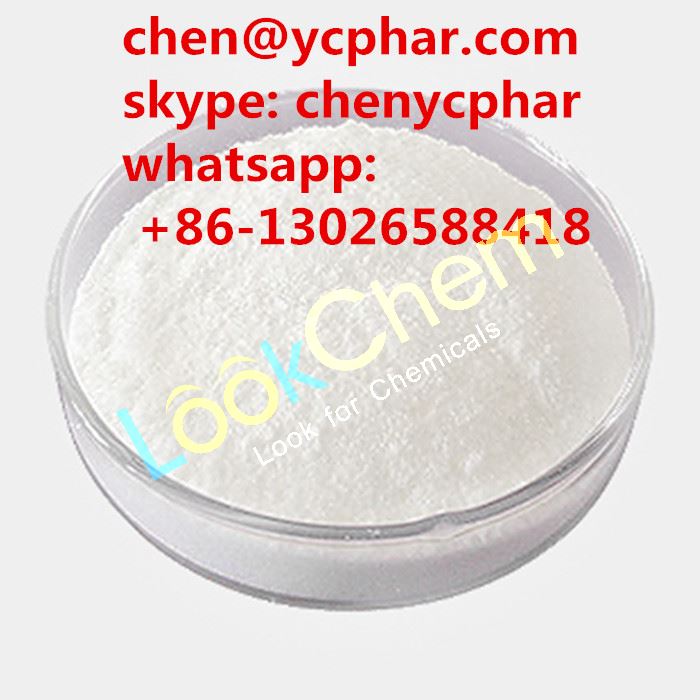Superiority
Pentadecapeptide BPC 157
Product Name Pentadecapeptide BPC 157
CAS NO. 137525-51-0
Molecular Formula C62H98N16O22
Molecular Weight 1419.53552
Purity 99%
Grade Pharmaceutical Grade
Appearance White Crystalline Powder
Specification 2mg/vial
Details
Pentadecapeptide BPC 157
Product Name Pentadecapeptide BPC 157
CAS NO. 137525-51-0
Molecular Formula C62H98N16O22
Molecular Weight 1419.53552
Purity 99%
Grade Pharmaceutical Grade
Appearance White Crystalline Powder
Specification 2mg/vial
1. BPC 157 has a strong anti-inflammatory activity in both acute and chronic inflammation models. In fact, preliminary results in clinical trials suggest that BPC 157 may become an important therapeutic tool for the treatment of inflammatory bowel disease. BPC 157 was shown to accelerate wound healing and to have a marked angiogenic effect. In addition, it significantly facilitates the healing of bone fracture in rats. This peptide also exhibits an osteogenic effect significantly improving the healing of segmental bone defect. BPC 157 accelerates the healing of transected rat Achilles tendon and transected rat quadriceps muscle.
2. Pentadecapeptide BPC 157, composed of 15 amino acids, is a partial sequence of body protection compound (BPC) that is discovered in and isolated from human gastric juice. Experimentally it has been demonstrated to accelerate the healing of many different wounds, including transected rat Achilles tendon.
3. This study was designed to investigate the potential mechanism of BPC 157 to enhance healing of injured tendon. The outgrowth of tendon fibroblasts from tendon explants cultured with or without BPC 157 was examined. Results showed that BPC 157 significantly accelerated the outgrowth of tendon explants. Cell proliferation of cultured tendon fibroblasts derived from rat Achilles tendon was not directly affected by BPC 157 as evaluated by MTT assay.
4. However, the survival of BPC 157-treated cells was significantly increased under the H(2)O(2) stress. BPC 157 markedly increased the in vitro migration of tendon fibroblasts in a dose-dependent manner as revealed by transwell filter migration assay. BPC 157 also dose dependently accelerated the spreading of tendon fibroblasts on culture dishes. The F-actin formation as detected by FITC-phalloidin staining was induced in BPC 157-treated fibroblasts. The protein expression and activation of FAK and paxillin were determined by Western blot analysis, and the phosphorylation levels of both FAK and paxillin were dose dependently increased by BPC 157 while the total amounts of protein was unaltered.
5. In conclusion, BPC 157 promotes the ex vivo outgrowth of tendon fibroblasts from tendon explants, cell survival under stress, and the in vitro migration of tendon fibroblasts, which is likely mediated by the activation of the FAK-paxillin pathway.
6. BPC 157 (Body Protection Compound-157) is a pentadecapeptide made up of 15 amino acids. The amino acids sequence in BPC 157 is similar to a portion of the human BPC amino acid sequence. Human BPC is found in the gastric juice. Experiments have shown that BPC 157 enhances the healing of wounds, including tendons wounds such as transected Achilles tendons of rats. The aim of this study was to investigate the probable mechanism that BPC 157 utilizes to accelerate the healing process in an injured tendon. The study used two group of tendon explants of which one group was cultured in a BPC 157-containing medium while the other group was cultured in a medium lacking BPC 157. These cultures were thereafter examined for tendon fibroblasts outgrowths. Such outgrowths indicated tendon regeneration.The results revealed that the explants' outgrowth was significantly accelerated in the culture containing BPC 157 as compared to the culture lacking BPC 157. Also, a MTT assay did show that BPC 157 does not directly affect cellular proliferation in a culture of rat-derived Achilles tendon. However, results also showed that BPC 157 significantly increased the survival of cells under oxidative stress. Furthermore, the Transwell filter migration assay showed that BPC 157 significantly increased in-vitro fibroblast migration in a dose-dependent fashion. Moreover, BPC 157 accelerated the dispersal of the fibroblasts in culture dishes in a dose-dependent manner.
7. Additionally, FITC-phalloidin staining was able to demonstrate that BPC 157 induces F-actin formation in fibroblasts. Likewise, Western blot analysis was able to detect the production and activation of paxillin and FAK proteins. The western blot analysis also showed that BPC 157 increases the extent of phosphorylation of paxillin and FAK proteins without affecting the amounts produced.
Thus, it can be concluded that BPC 157 enhances the ex-vivo growth and in-vitro cellular migration of fibroblasts derived from rat tendon explants. Moreover, BPC 157 also increases the probability of a cell surviving under oxidative stress. These actions of BPC 157 are probably mediated by the activation (through phosphorylation) of the proteinic FAK-paxillin pathway.


![]() China (Mainland)
China (Mainland)